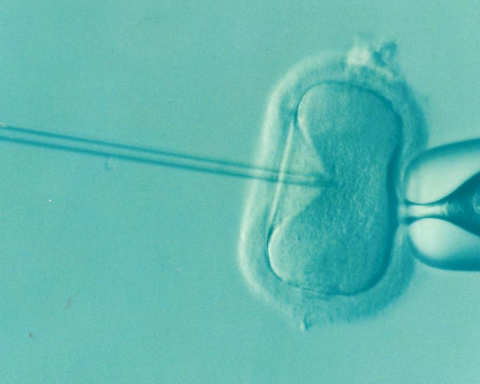For all the research on this nutrient, there are a lot of myths surrounding protein. Many gym-goers know how essential protein is. It is essential for recovery from training, helps repair and build muscle, and can boost performance.
In fact, it’s the only essential major nutrient needed for your body to function. But, this importance has led to some exaggeration over what protein can do.
This means that many can obsess over their protein intake. Doing so can make it hard to develop a diet that is sustainable and efficient. Likewise, many people can often fear a high protein diet.
This can stem from many media stories in the past touting potential dangers of a high protein diet. One particularly ridiculous story equated a high protein diet to smoking.
For this reason, we put together this article to bust eight myths of a high protein diet. Busting these myths will help you make effective and efficient food choices to include enough protein in your diet to see the results you need. Here are the myths you need to know:
High protein diets are bad for your health
This is one that has come from various media stories. Some of the concerns about high protein intake have included damage to your bones, heart, and even mood.
But, most of these claims were made off of badly designed research, or no research at all. Well-designed research that does exist shows that high protein diets have no effect on bone health, heart health, and can improve mood during a diet.
It may also improve overall health by increasing muscle mass, which has been shown to help prevent disease. If you’re looking to improve your health and wellbeing, be sure to get enough protein.
Protein can damage your kidneys and liver
On a more specific note, high protein consumption has been labeled as being dangerous for the kidneys or liver. This has come from theories that higher protein intake means more work for the liver and kidneys, which each work to process protein.
The liver breaks it down to produce glucose, which can be used for energy, and the kidneys excrete excess urea, which is the nitrogen from protein.
But, it turns out the liver and kidneys are well up for the task. Studies have shown that even long periods of high protein intake have no detrimental impact on the liver or kidneys.
Much like the above claim on the negative impact of protein on overall health, this claim is just another myth.
Quantity matters most
On the other side of the debate, when looking at protein intake, many obsess over quantity. But, quality is often more important. For example, one of the highest protein foods available is jelly.
Since the protein is made up of “non-essential” amino acids – means it has a lesser impact on protein synthesis. This is because non-essential amino acids can be made by the body. Meanwhile, “essential” amino acids cannot.
If you’re not taking in enough essential amino acids, eating a lot of protein won’t have many benefits. This is why meats, fish, and dairy are so useful for building muscle and promoting recovery. They are packed with essential amino acids. But, why is whey protein touted as such a high-quality protein? This is because of leucine.
Leucine is an essential amino acid which is particularly beneficial for muscle protein synthesis. This amino acid is found in dairy products like milk and cheese. It’s especially potent in supplements like whey shakes or protein bars like mars protein bars.
By consuming these high-quality protein foods, you can get more benefit with less protein. As with many factors in fitness, quality beats quantity.
Women need as much protein as men
A rising sentiment in fitness is “women should train like men” to get leaner and fitter. This logic has applied to their diet as well. But, they may get just as much benefit from less protein than men.
This is because women have higher levels of estrogen, which is a hormone that can prevent muscle breakdown. This means they can retain more muscle with less protein.
So, if you’re a woman and you find it hard to take in a lot of protein, consider reducing your intake.
You need 1 gram per pound of bodyweight of protein per day for optimum results
The general rule of thumb for gym-goers is to take in 1 gram of protein per pound of their body weight each day. This comes down to around 2 grams per kilogram in body weight.
This is meant to be the most protein you can take in that will provide the most benefit. Higher intakes are then meant to have no additional benefit. Meanwhile, lower intakes supposedly provide lower benefit.
But, as with the myths above, research has debunked this. One comprehensive study showed that the highest level of protein needed for those looking to optimize strength and muscle was around 1.6 grams per kilogram of body weight per day.
For females, around 1.4 grams may be sufficient. For elderly people around 1 gram seems sufficient. For the best results, you’ll be happy to know that less can be more with protein intake.
Protein timing doesn’t matter
This is a hotly debated topic among nutrition scientists. Some argue that protein timing is important to maximize muscle mass and fitness. Others argue it doesn’t matter at all.
But, a lot of research indicates that timing your protein intake may be important. Studies have shown that taking in protein around a workout may help boost recovery.
Other studies show that taking in protein in the evening is more beneficial for weight loss than if consumed in the morning. Timing may be particularly good for highly experienced athletes. When eating protein, be sure to pay attention to when as well as how much you take.
There is a maximum amount of protein your body can use in a meal
This myth came from a study showing that there was no more muscle protein synthesis caused by eating any more than 20 grams of protein in a meal. But, there has since been studies showing that higher protein intake may help further boost muscle by reducing muscle protein breakdown. If you have to take in all your protein over a few meals, rest easy knowing you’ll obtain as much benefit as splitting it over more sittings.
Do your research ahead of time
As you can see, there are many myths about protein and the appropriate amount you should consume each day. If you are still struggling, consider seeing a nutritionist or your primary doctor. You want to do what’s best for your body – so this may take a little hard work and dedication to get where you want to be. *This is a sponsored post and does not necessarily reflect the views and opinion of pharma mirror magazine and its parties.








